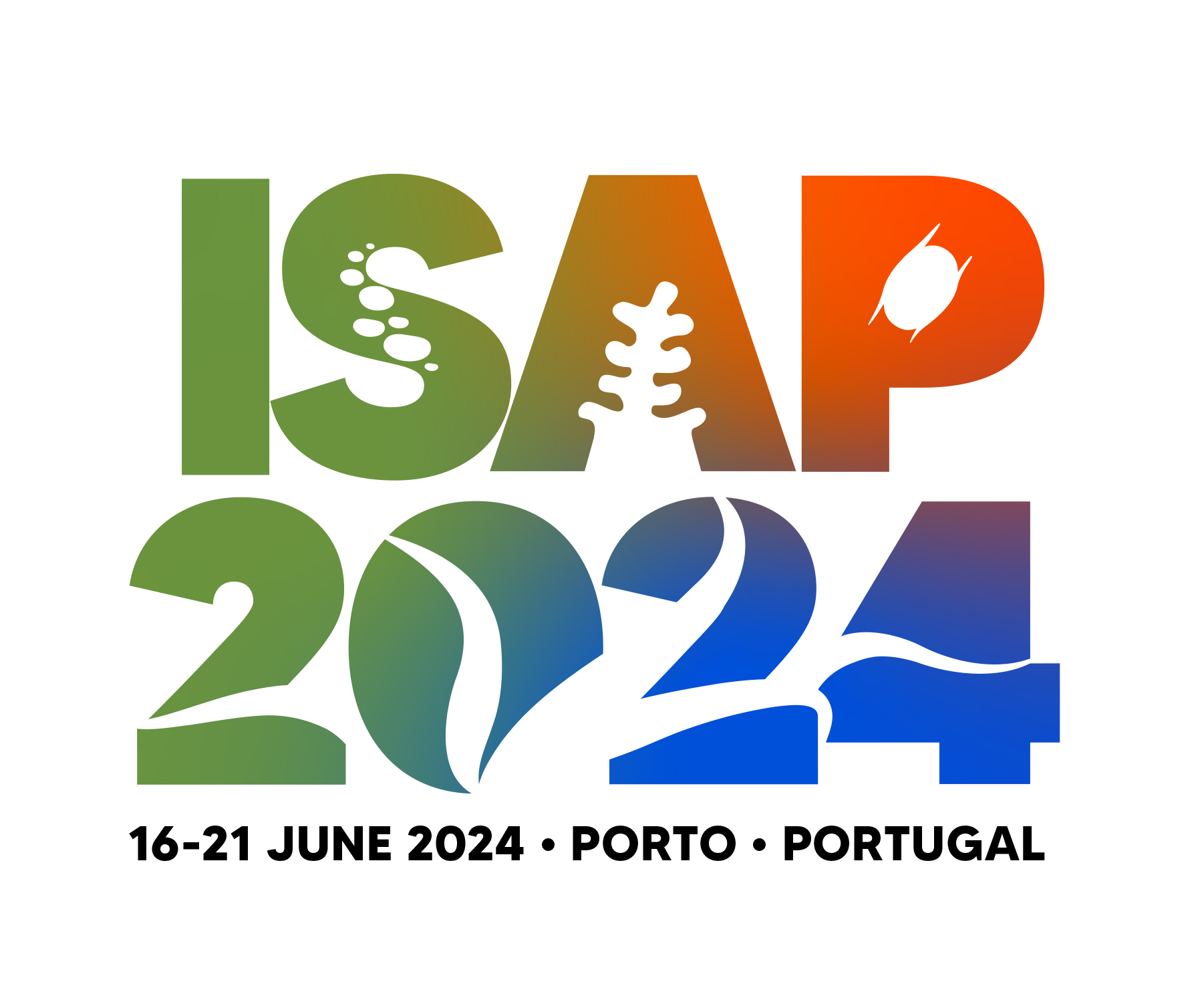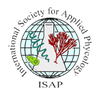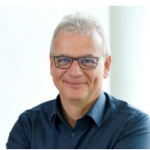
Turning microalgae into sustainable green cell factories for bioindustry
Prof. Olaf Kruse
Read more
Olaf Kruse started his scientific carrier as a postdoctoral fellow at Imperial College London between 1994 and 1997 with research topics on Plant Biochemistry and Algae Molecular Biology. After his return to Germany, he received his habilitation (venia legendi) in Plant Molecular Biology at Bielefeld University in 2001, where he became a reader and young research group leader until 2005. In 2006, he was appointed as the Head of Life, Earth & Environmental Sciences at the European Science Foundation (ESF) in Strasbourg/France. In 2007, he became a Research Fellow at The University of Queensland/ Australia and a Co-Director of the International SOLARBIOFUELS consortium. In 2009, he was appointed as a Full Professor at the Department of Biology of Bielefeld University/Germany and in 2015 as the Scientific Director of the Center for Biotechnology (CeBiTec) at Bielefeld University. His research as Head of the Algae Biotechnology Group focuses on the Molecular Biology and Synthetic Biology of microalgae to establish them as green cell factories in biotechnology for the efficient conversion of sunlight energy into sustainable products. He also works on molecular signalling pathways of light harvesting in phototrophic microbes.
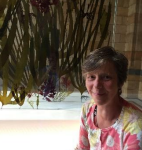
Reconciling marine conservation and sustainable seaweed exploitation
Prof Christine Maggs
Read more
Christine Maggs studied Botany at Oxford, graduating in 1978, and
worked as a diving botanist in Wales before starting her PhD on the ecology and systematics of maerl beds with Michael Guiry in Galway. Following postdoctoral fellowships in Canada and Belfast, Christine took up a lectureship in marine biology at Queen’s University Belfast in 1995.
She became Professor of Phycology in 2004 and Head of School of Biological Sciences in 2010. At QUB she led the School’s successful 2009 submission for a Silver SWAN Athena award (for gender equality), and was closely involved in achieving the Gold award. She moved to Bournemouth University as Dean of Science & Technology in 2015, and two years later took up the new position of Chief Scientist of the UK’s Joint Nature Conservation Committee. After retirement from JNCC at the end of 2022, Christine became a Non-Executive Director of the AIM-listed company Ocean Harvest, which makes a blended seaweed ingredient for animal diets, improving their health principally by the effect of seaweeds on the microbiome.
Her research focuses on the molecular systematics of red and green seaweeds, particularly aliens, and the interface between marine conservation and sustainable seaweed exploitation. She has published over 120 peer-reviewed scientific papers and co-authored four books – two monographs of red algae in the Seaweeds of the British Isles series, one on green seaweeds and a popular Seasearch guide.
Christine was appointed as a Member of the Royal Irish Academy in 2013 and in 2014 received the Award of Excellence of the Phycological Society of America (a lifetime award). The British Ecological Society was awarded the Equality & Diversity Champion Prize in 2017.
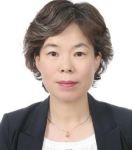
Challenges and opportunities through seaweed cultivation and breeding of Korea
Prof. Eun Kyoung Hwang
Read more
Dr. Eun Kyoung Hwang, she is a Senior Researcher at the Seaweed Research Institute, National Institute of Fisheries Science, Korea. She received a PhD degree at Pukyong National University, Busan, Korea. She worked as a post-doctoral fellow at the Marine Lab., Queen’s University of Belfast, UK. She is currently involved in research on seaweed cultivation and breeding. Her research projects and contributed papers mainly include; Ecological & aquacultural aspects of seaweeds, mass roduction of brown alga (Saccharina, Undaria, Sargassum, Ecklonia, Undariopsis, Kjellmaniella and Silvetia), green alga (Codium, Capsosiphone and Ulva), and red alga Pyropia.
Her research primarily involves investigating various aspects of seaweed cultivation, including the optimization of cultivation methods, development of new cultivation techniques, and identification of factors influencing seaweed growth and quality. Dr. Hwang’s expertise also extends to the evaluation of seaweed species for their commercial viability, as well as the development of innovative seaweed-based products.
Through her work, Dr. Hwang has contributed to the growth and sustainability of the seaweed industry in Korea. Her research findings and insights have helped enhance seaweed cultivation practices, increase production efficiency, and promote the utilization of seaweed resources in various sectors such as food, pharmaceuticals, cosmetics, and bioenergy.
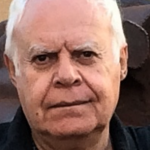
Industrial technologies for the production of natural astaxanthin
Prof. Sammy Boussiba
Ben Gurion unversity of the negev Israel
Read more
Prof. Boussiba’s current research interests concern the use of microalgae for human health and environmental protection. His his achievements include the unique development of biotechnology for the production of astaxanthin-rich Haematococcus biomass, and the successful expression of BTI toxin genes in nitrogen-fixing cyanobacteria for combating tropical diseases.
As an outcome of this research, commercial enterprises were founded, one of which is a plant located in the Arava (Algatechnologies) to produce the valuable carotenoid astaxanthin produced from the green alga Haematococcus pluvialis. It has been in operation since 2013 and is considered one of the largest plants producing rich astaxanthin biomass. Recently, Prof. Boussiba’s major activity involves the production of natural pigments from microalgae ( blue, red and yellow) under the ambarella of a start-up by the name Algatone. Prof. Boussiba is the author of more than 150 publications and has been the supervisor of ca. 50 research students (M.Sc., Ph.D., and postdocs).
In 2003, Prof. Boussiba was awarded “Doctor Honoris Causa” by the University of West Hungary. As a reward for his achievements in Microalgal Biotechnology, he was awarded in 2004 a Chair in Economic Botany, by the Senate of Ben-Gurion University. All the above has positioned Prof. Boussiba among the world’s leading scientists in the field of Microalgal Biotechnology. Between 2008-2011 Prof. Boussiba served as the President of the International Society of Applied Phycology (ISAP). In 2011, he was appointed as a member of an Ad Hoc Committee appointed by the American National Academy of Sciences, to examine “Sustainable Development of Algal Biofuels”. In 2014, he received the Distinguish Applied Phycology Award for from ISAP his continued and outstanding contribution to this field of science. From 2018 to date, he is Vice-president of the EABA (European Algal Biomass association) and Chairman of its Scientific Committee.
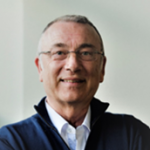
Microalgae Biotechnology: Applications in a real world
Prof. Jean-Paul Cadoret
Read more
Jean-Paul Cadoret contributes to the fields of marine biology, cellular and molecular biology. His varied career includes roles such as Vice-President of the European Algae Biomass Association (EABA) and advising various companies and institutions. From 2015 to 2020, he managed Greensea, a company specializing in algae cultivation in the Mediterranean. Since 2020, he has held the position of Chief Scientific Officer at ALGAMA, a company dedicated to the valorization of algae. His field extends to the management of the Biotechnologies and Marine Resources Unit, Successively Researcher, Team leader, Director of the laboratory Biotechnology of Algae in the governmental Institute IFREMER (France). Co-Founder of the company Algenics, and the company Iaso-Bioproduction. His academic career includes obtaining a PhD in oceanology and a Habilitation to direct research (Professoral Habilitation), reflecting his commitment to academic activities. He has made notable contributions globally, serving on the boards and scientific councils of various organizations. Recognition of Jean-Paul Cadoret’s contributions to the scientific field is reflected in distinctions such as the “Entreprendre” Business Creation Prize and the INPI Regional Innovation Prize. Beyond awards, his impact is reflected in 8 patents, 80 A-rank publications and 10 book chapters, showcasing his expertise in algae and marine science. With an unwavering dedication to the advancement of scientific knowledge, Jean-Paul Cadoret’s legacy builds on his significant contributions to the field, reflecting a career dedicated to the marine world.
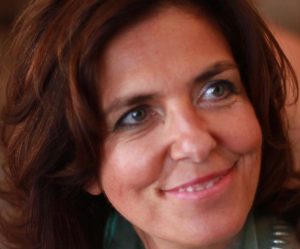
Title to be announced
Prof. Isabel Sousa Pinto
Read more
Professor at the Department of Biology of the Faculty of Sciences of the University of Porto and member of the Board of Directors of the Centre for Marine and Environmental Research (CIMAR) as well as Head of the Aquatic Biodiversity and Conservation group. One of her main research focus is on algae, on ecology of marine forests, and how they change as well as on seaweed aquaculture and how it can be used to provide biomass for different applications, as food, feed, cosmetics and biofuels while improving the environemnt and offering sollutions for biodiversity and climate change, including carbon sequestration. She has been working on coastal marine Nature Based Solutions, on Integrated Multitrophic Aquaculture (IMTA) and Restorative Aquaculture as well as actively restoring marine forests (macroalgae), funded mostly by EU framework projects and other international funding programs with European and international researchers and stakeholders. Other research interest has been on marine biodiversity and ecosystem functioning and services, how they are changing and why, and on sollutions for the biodiversity, climate and pollution crisis. She is promoting integrated Ocean Observations, being the co-chair of MBON (Marine Biodiversity Observation Network), part of GEO BON and in the Steering committee of AtlantOS and EOOS (European Ocean Observation System). She is actively working on the science-policy – society interfaces, e.g working with IPBES – the Intergovernamental Panel on Biodiversity and Ecosystem Services, as the Portuguese Representative in this platform until 2018, while sellected as a Coordinating Lead Author os the Regional Assessment on Biodiversity and Ecosystem Services from Europe and Central Asia then was ellected to the Multidisciplinary Expert Panel, a panel that supervises the scientific work of the Platform, and co-chair of its Knowledge and Data task force. In Europe she is also co- coordinator of Euromarine – European Network of Marine research, a consotium of more than 60 marine research institutions
In Portugal she is Member of the “Concelho Nacional de Ciência, Tecnologia e Inovação” an advisory body for the Minister of Science and Miniter of Economy of Portugal, she is in the Advisory Board of Act4Nature and is founder and Vice- President of the Associação Portuguesa de Algologia Aplicada (APAA).

Empowering Portugal's Blue Biotechnology Sector: Pioneering Sustainable Economic Growth through Marine Biodiversity
Dr. Tiago Pitta
Read more
Tiago Pitta e Cunha has been the Chief Executive Officer of the Oceano Azul Foundation since its establishment in 2017. He has pursued an international career advocating for stronger ocean governance for over two decades. He has worked in ocean sustainability for the United Nations, the European Commission, the Portuguese government, and the President of Portugal.
He started his career in the United Nations as a counsellor on ocean affairs in the Permanent Mission of Portugal to the United Nations (1997-2002) and represented the European Union in the UN General Assembly on ocean affairs during the 2000 Portuguese and French EU Presidencies. He was appointed Coordinator of the Oceans Strategic Commission, a high-level working group in charge of designing the country’s national strategy for the ocean, by the Portuguese Prime Minister in 2002. As a policymaker, he worked in the cabinet of the European Commissioner for Maritime Affairs as the Coordinator of the European Commission for the development of the new EU Integrated Maritime Policy (2004 – 2010). In Portugal, he was an adviser to the President of the Republic on Environment, Science and Maritime Affairs (2010-2016).
In 2016, the European Parliament awarded him the European Citizen’s Prize for his actions dedicated to promoting ocean governance in the United Nations, the European Union, and Portugal. In 2021, he was awarded the Pessoa Prize, the most prestigious award in Portuguese culture and science.
